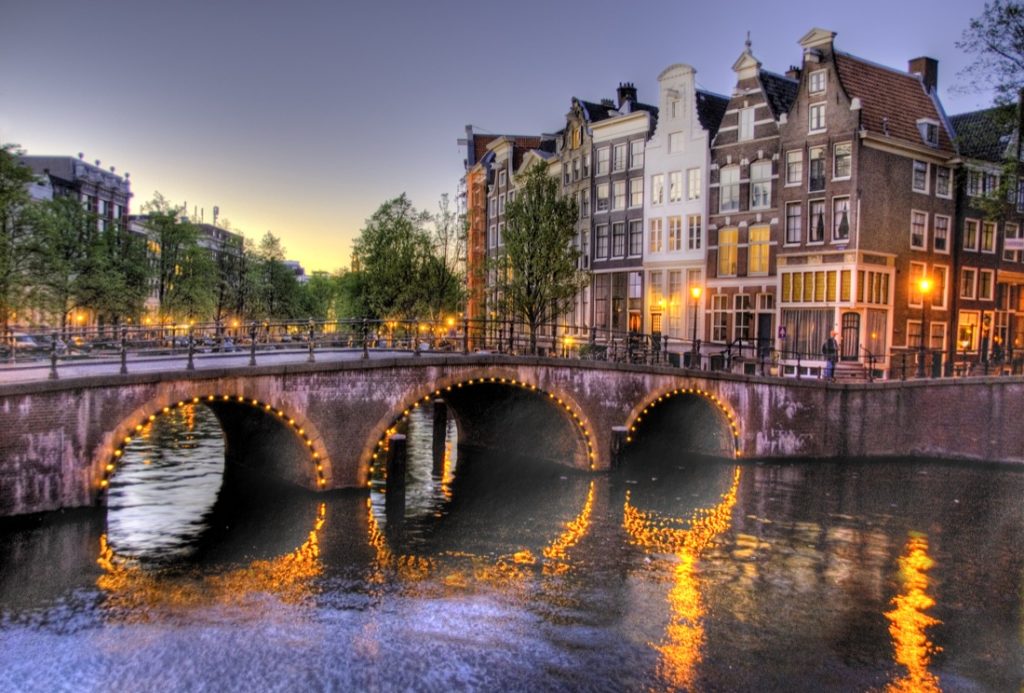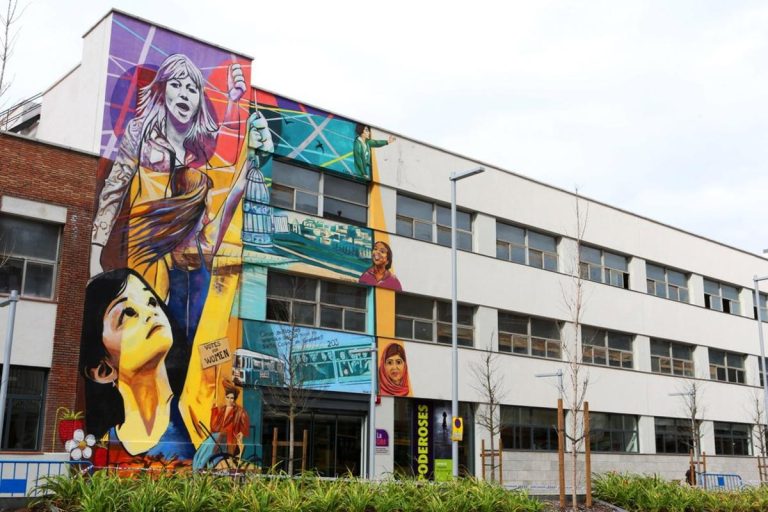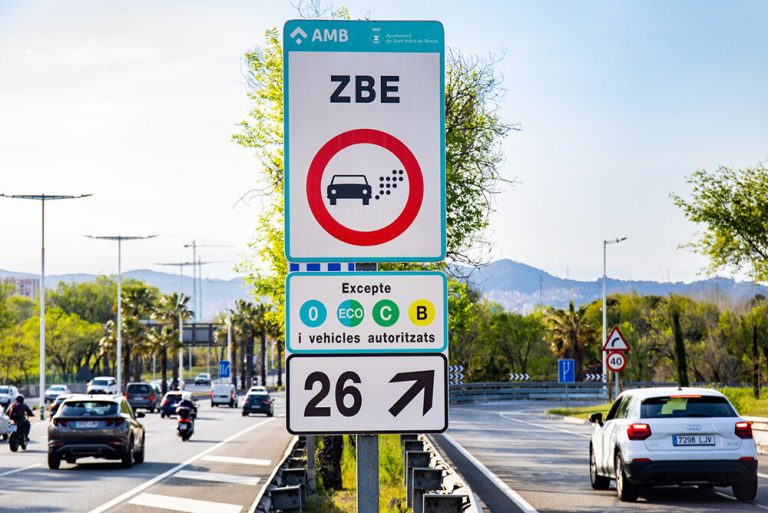The feeling you get from being in a truly smart city is absolutely indescribable! No second-level marketers and third-grade advertising gibberish, nor putting Amsterdam at the top of the rankings with artificial and empty events. In Amsterdam everything is different: it is a truly ‘cool’ movement. More than smart. There is a clear acceptance of difference and even with all other cities fighting to reach the top of the rankings, the city breathes life, world, and it inspires so much more than that.
Yes, I know that Amsterdam is a “doom den” of drugs, prostitution, and so on. Yes, we have all been lost in the small streets impregnated with “strange” and intense odours. Yes, Amsterdam is a horrible thing that most cities don’t want to go near. Massive amounts of tourists, huge amounts of alcohol, parties, all types of abuses… yes, Amsterdam is a doom den. Especially on the weekends.
But unlike other cities, Amsterdam does not deny this condition. It embraces it and confines it to the amusement park of the first rings of the Centruum, especially Dam Square, Rembrandtplein and the Red Light District.
The Red Light District has become a mandatory visit for tourists of all ages, causing a real fuss for the ‘stakeholders’ of the night (prostitutes, pimps, bars, coffee shops, etc.) – God! Nobody knows how to deal with this! Young couples taking romantic selfies in front of the windows, hordes of elderly tourists, Asians circulating frantically through the red streets listening to the chatter, trading sessions, provocations. And they laugh, and they take part!
No wonder that the city of Amsterdam created the figure of the “Director of the Night”.
Visitors invade the museums of the city and vibrate with the Americanised and Italianised food. This is the city everybody knows. This is the one that even the residents of Amsterdam like to visit every once in a while – when the weather is good, on the weekends, with friends.
But this is not the smart condition of Amsterdam. It never was.
The notoriety that many of these groups contributed to making the city universally known has other (fortunately) well-hidden layers.
The advantage of Amsterdam that beats many other European capitals in all dimensions is precisely the culture that insists on living, residing and working in the city. It is true, it has gentrification and other phenomena that distort it socially and economically, but what I really observe in this city is that it is not strange at all for everything to work!
Cities becoming amusement parks?
Sometimes I feel that some cities are more like “amusement parks” than anything else. I feel that there is an economic segmentation based on one or two sectors (usually tourism and real estate/housing) and that nothing else flourishes.
Not in Amsterdam – the startup movement is serious! People work here, and they work a lot.
Right now, on a terrace with 5 occupied tables, 3 of us are working with our computers open next to the beer, the wine, the food, the tea…
And why is this important? Because there are cities (and countries) that like to manufacture concepts, invent new things even when they are old. The entrepreneurship of 4 years ago has turned into startups. Local employment initiatives went from startup to ‘funding’. In the end, it’s all the same but there are these agendas that spend our resources in trying to convince us that now it’s different. I won’t say that’s not true, but there are so many differences between those who work and those who try to invent concepts…
Startups mean hard work in Amsterdam
Why are startups important for a Smart City? Amsterdam knows better than anybody else. It is a central hub in the digital economy, it is the site of some of the most important global digital corporations and it will continue to be. Because in Amsterdam the sunny days, terraces, bars, restaurants, boat rides on the canals, green parks all make up an ecosystem of creativity and work that feeds results.
Amsterdam inspires. Amsterdam breathes. Outside of the touristic rings of the Centruum, it’s a city that’s completely new and different. The co-works, vegans, as startups, trendy restaurants, terraces, everything is in permanent hustle making Amsterdam a true Smart City.
When I say it’s cool, it is not to belittle other cities. But it’s where you see 75 year-old ladies pedaling alongside 25 year-old entrepreneurs, housewives, students, poor, rich, etc. It’s an extraordinary and transparent palette.
In amusement park cities, I always have the strange feeling of being out of place. Nobody is out of place here.
In some conferences I highlight two cities: Detroit and Amsterdam. And particularly Amsterdam because it is the one that has no secrets. Everything is on display! The secret of a smart city: open, tolerant, crazy. Yes, you may laugh… but Amsterdam doesn’t laugh.
This is serious. The creative class, which at this point is who makes cities and countries successful and who contributes to the wealth and human and social development, are not narrow-minded, retrograde and conservative. They are not afraid of risk, of doing something different, of seeming crazy and absurd in the eyes of those who think of themselves as visionary holders of miraculous solutions, but who in 30 years or more haven’t contributed to developing cities or regions.
The Creative Class haven needs protection
Amsterdam is like a university for smart cities. And it is not because there is technology, or startups, or intelligence in the public and local administration. But because of its craziness. They dress funny, they say things that nobody understands, and they have an absurdly confusing sense of humour. They sing, dance, write, touch, and get wild. They are crazy. Heterosexuals, homosexuals, bisexuals, transgender, drug addicts, dependent on another order… these are only some of the stereotypes but there are more: inventive, innovative, creative, critical, intelligent, assertive, entrepreneurial. All crazy. But they work. A lot.

Photos: betterworkingworld.ey.com; netherlands-tourism
Vitor Pere ira dedicated 20 years to journalism and communication sector, connected with new ICT projects in key sectors like Tourism/Travel, Cities and Smart Regions and, of course, communication, information and analysis. Working near to associations, municipalities and other institutional (public and private) entities in Portugal as a communication, ideas and messages organization expert, new projects and business ideas mentor and sustainable development. Awarded the prize of Personality of the Year Smart Cities Live 2015, awarded for the first time within the frame of the Green Business Week, an initiative of the AIP Foundation. Blogger in Portugal, Amsterdam, London, EUA, Canada and Spain.
ira dedicated 20 years to journalism and communication sector, connected with new ICT projects in key sectors like Tourism/Travel, Cities and Smart Regions and, of course, communication, information and analysis. Working near to associations, municipalities and other institutional (public and private) entities in Portugal as a communication, ideas and messages organization expert, new projects and business ideas mentor and sustainable development. Awarded the prize of Personality of the Year Smart Cities Live 2015, awarded for the first time within the frame of the Green Business Week, an initiative of the AIP Foundation. Blogger in Portugal, Amsterdam, London, EUA, Canada and Spain.






